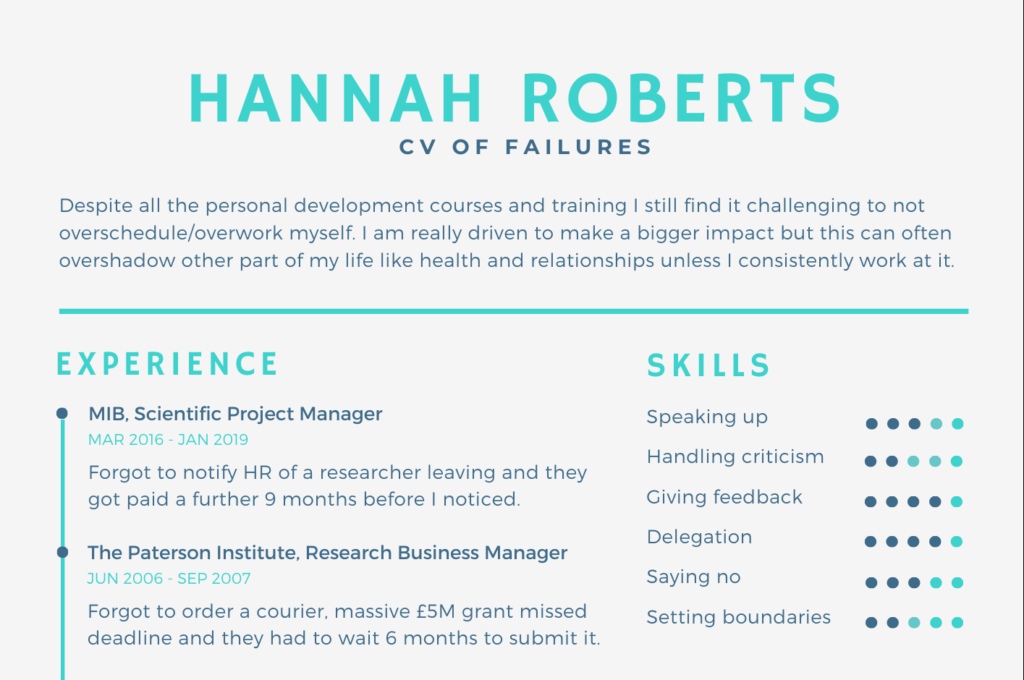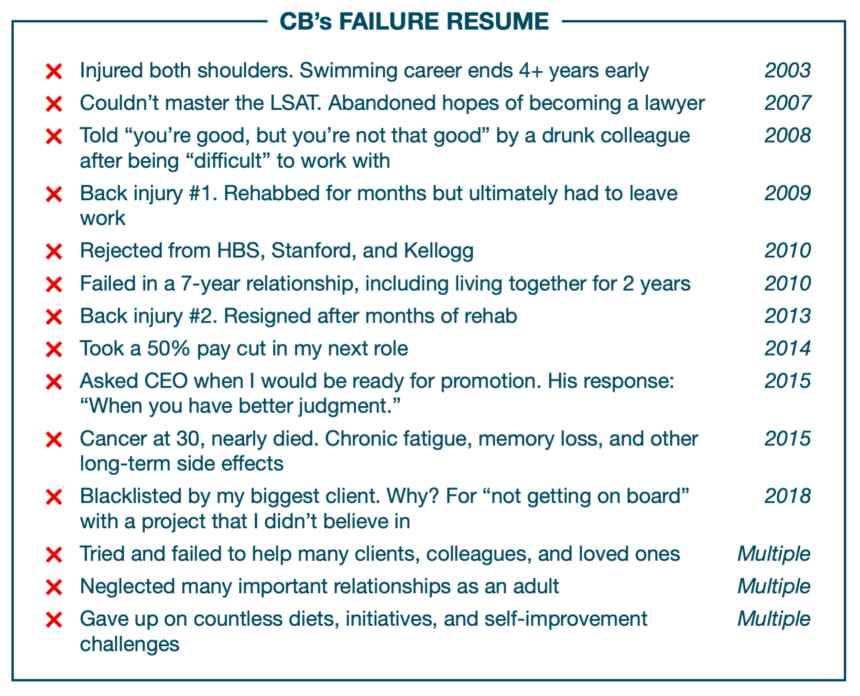When it comes to writing a resume, many people struggle with the idea of discussing failures. The common assumption is that highlighting setbacks might ruin your chances of landing an interview. However, when presented effectively, failures can showcase your resilience, growth, and problem-solving skills. In this article, we’ll explore how to communicate failure on a resume in a way that not only addresses potential red flags but also demonstrates your professional development to employers.
Why You Shouldn’t Hide Failures on Your Resume
Many job seekers believe that they must hide every mistake or failure in their career, thinking it will make their resume spotless. However, this approach can backfire. Employers don’t expect candidates to be perfect. Instead, they value authenticity, adaptability, and a demonstrated ability to learn from challenges.
When you strategically include failures in your resume, you tell a story of perseverance. This approach can make you relatable, human, and trustworthy. Hiding failures, on the other hand, can raise suspicions, especially if there are unexplained gaps or vague descriptions of past roles. Remember, recruiters often prioritize candidates who show they’ve overcome difficulties over those who only highlight successes.
How to Turn Failures into Success Stories
Turning failures into success stories is all about reframing how you present the experience. Instead of focusing on the failure itself, emphasize what you did to address the issue and what you learned from it. Employers are not interested in your mistakes—they care about how you responded to them.
For example, if you led a project that didn’t meet its objectives, don’t just mention the failure. Instead, discuss the actions you took to improve processes, how you collaborated with others to find solutions, or what steps you took to prevent similar issues in the future. Highlighting these efforts shows you can handle challenges constructively.
Focus on the Lesson Learned
Every failure has a lesson, and that lesson should take center stage. When writing about your setbacks, focus on what the experience taught you. For instance, if a business venture you started didn’t succeed, you might emphasize how it taught you skills like budgeting, market research, or customer engagement.

By framing failures as learning experiences, you demonstrate a growth mindset—something employers highly value. This approach not only makes your resume stand out but also shows your ability to adapt and improve under pressure.
Use Numbers to Show Growth
Quantifiable results are one of the most effective ways to communicate growth after a failure. Use metrics to show how you’ve improved over time. For instance:
- If your first sales initiative fell short, mention how you revamped your strategy and increased revenue by 30% in your next attempt.
- If you struggled with meeting deadlines early in your career, highlight how you implemented better time management practices and later delivered projects 15% ahead of schedule.
Numbers give concrete evidence of your progress and make your resume more compelling.
Avoid Overexplaining the Problem
While it’s important to address failures honestly, don’t dwell on the negative aspects. Overexplaining the problem can make you seem defensive or overly focused on the past. Instead, briefly acknowledge the issue and move quickly to the solutions you implemented and the results you achieved. Keep the tone positive and forward-looking.
Examples of Communicating Failures Effectively
Here are a few examples of how to phrase failures constructively on a resume:
- Example 1: “Led a product launch that initially missed its revenue targets by 20%. Collaborated with the sales and marketing teams to refine the strategy, resulting in a 50% increase in sales within three months.”
- Example 2: “Managed a team during a challenging quarter where turnover rates increased. Implemented new onboarding and retention strategies, reducing turnover by 25% within six months.”
- Example 3: “Started a small business that closed within two years but gained hands-on experience in financial planning, customer service, and market analysis.”
These examples highlight growth, problem-solving, and the ability to bounce back stronger.
What Not to Do When Discussing Failures
While being honest about failures can enhance your resume, there are some pitfalls you should avoid. Missteps in how you present failures can do more harm than good. Here’s what not to do when discussing failures on your resume.
Don’t Use Vague Phrases
Vague language can make you seem evasive or insincere. For instance, phrases like “encountered challenges” or “dealt with issues” don’t provide enough context or value to employers. Be specific about the failure and the steps you took to address it. Employers appreciate transparency, but only when it’s backed by clear, meaningful details.
For example, instead of saying, “Faced challenges in project execution,” you could write, “Initially struggled with aligning team efforts on a project but implemented weekly check-ins that improved communication and increased efficiency by 40%.”
Avoid Sounding Defensive
It’s important to avoid sounding defensive when discussing failures. Employers aren’t looking to place blame—they’re assessing how you handle setbacks. Defensive language, such as blaming coworkers, managers, or external factors, can make you seem unaccountable.

Instead, take ownership of the failure. Acknowledge your role in the situation, and focus on what you did to improve or correct it. This approach demonstrates maturity and accountability, qualities that employers value highly.
Never Overemphasize the Failure
While it’s necessary to mention failures, don’t let them overshadow your achievements. Your resume should still primarily focus on your successes. Acknowledge failures briefly and use them as a bridge to showcase your growth and accomplishments. Overemphasizing failures can distract from your overall qualifications.
Why Honesty Builds Trust with Employers
Honesty is a powerful tool in building trust with employers. By addressing failures candidly and highlighting your growth, you show integrity and self-awareness. Employers are more likely to trust candidates who are open about their challenges because it suggests they will be reliable and transparent in the workplace.
The Right Way to Address Gaps Caused by Failures
If a failure resulted in a gap on your resume, address it proactively. Instead of leaving the gap unexplained, briefly mention what you were doing during that time. For instance:
- “Took time to upskill in digital marketing after a business closure and completed a Google Ads certification course.”
- “Used a career break to volunteer with a local nonprofit, gaining leadership and organizational skills.”
This approach ensures that gaps don’t raise red flags for potential employers.
How to Practice Talking About Failures
Practicing how to discuss failures is just as important as how you write about them on your resume. Before interviews, rehearse your responses to questions about challenges or setbacks. Focus on presenting your failure as a learning experience and ending your response with a positive takeaway.
Mock interviews with friends or mentors can help you refine your delivery. Pay attention to your tone—keep it confident, positive, and professional. The more you practice, the easier it will be to communicate failures effectively.
The Bottom Line
Failures are an inevitable part of any career, but they don’t have to be a liability on your resume. By framing failures as opportunities for growth and highlighting the lessons learned, you can turn potential weaknesses into strengths. Be honest, specific, and solutions-focused, and always emphasize the positive outcomes of your experiences.
Remember, employers aren’t just looking for candidates with spotless records—they want individuals who can navigate challenges, learn from their mistakes, and grow into stronger professionals. By following the tips outlined in this article, you can confidently communicate failures on your resume without hurting your chances of landing your dream job.






